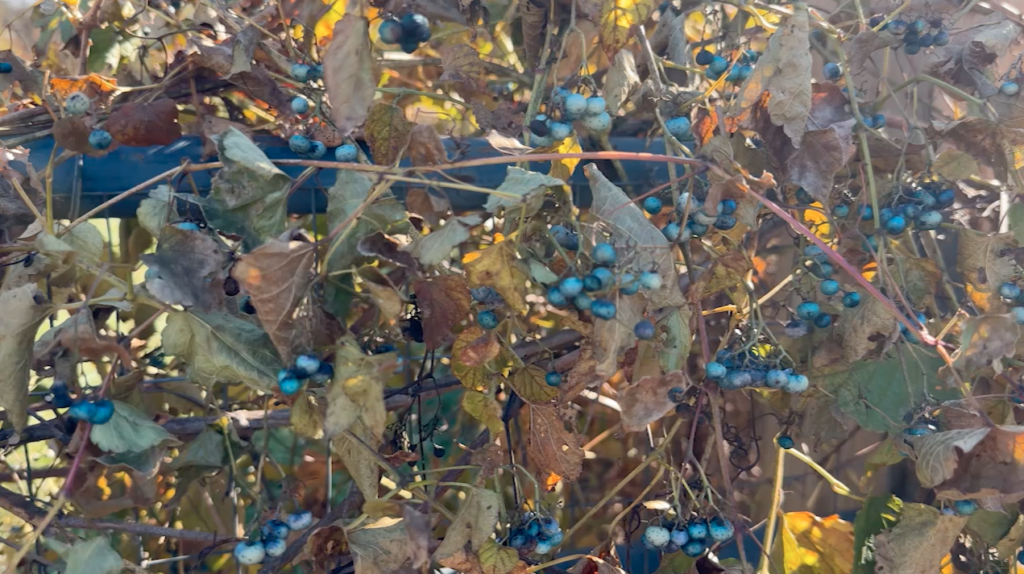Live Green: Leave the Leaves!
SNOW HILL, Md – A Movement called “Leave the Leaves” is aimed at protecting local pollinators.
Every fall, the leaves change and drop, and it’s that time where people rake their leaves to clean their yard, but that’s actually doing more harm than good. Leaving the Leaves provides shelter for local pollinators during the winter months.
“The leaves are the place where all of those little critters go to spend the winter, and are protected from the elements and everything, and can move from the one stage of life to the next,” Director of Land Programs, Jared Parks explained. “If I take that leaf litter away, I take all of those critters away with it and may put them in a place where they can’t survive. It’s also going to leave the seeds and all of the other things, that the birds are going to eat. Reptiles and amphibians really need down wood leaf layer, and we kind of interfere with that or interrupt that process by cleaning it up.”
The Xerces Society is a science-based conservation organization that popularized the movement.
“I first learned about leave the leaves as a movement or a promotional fall campaign from Xerces society,” Outreach Specialist, Beth Sheppard said.
Beth was inspired to spread the word through the Lower Shore Land Trust, encouraging others to leave their leaves this fall. Meteorologist Erich Ahlf told me why exactly the leaves change.
“You need sunlight for the process of photosynthesis. So when we start to lose that sun angle and lower the amount of daylight that we have, the actual color of the leaves is exposed,” he explained, “in the woods, it provides natural compost and it breaks down into the soil and provides nutrients for the trees.”
It’s not just about the leaves on the ground either. Through Doug Tallamy’s book, “The Nature of Oaks,” Parks and Sheppard learned oaks are fire adapted trees, and their leaves don’t always fall. So, small creatures and bugs will roll themselves in those leaves for the winter as well.
“The stems and the sticks are also home and habitat for a lot of other, insects that want to live inside or just be protected in the in the mess of it all.” Sheppard shared.
If all of the leaves are removed, this can take away essential nutrients from trees as well, but Parks also suggest not piling leaves against trees because that can kill the route system. The Lower Shore Land Trust uses alternative practices as well as “leaving the leaves” to benefit trees.
“We also are involved in on a larger scale with prescribed burns in that we might say well why are you out, you know, burning here, you are saying, leave the leaves,” Sheppard said. “and now you turn around and recommend burning meadows or for forest thinning as a practice, and that’s because in nature there are times where nature’s not necessarily going to rake it clean, but maybe there’s going to be a fire and a low fire that has a high fuel content will just burn kind of quickly and briskly and not kill the canopy trees.”
Having a leaf layer also serves as a temperature regulator, and retains moisture, which can be beneficial for gardens. If anyone still wants to rake their leaves this fall, Sheppard and Parks suggested leaving pockets of leaves around the yard for those hibernating pollinators. That way, there can be more diversity for next year.
“Don’t underestimate the need for bare ground during the summer, the spring and in the fall, which is, the habitat for a lot of our solitary bees,” Parks said. “They nest, they make their nests in little holes, within that bare ground. That leaf litter layer that covers the ground during the winter insulates the ground, and so both are necessary.”
Sheppard and Parks suggested to use leaves for compost in the garden as well because that can save people money instead of buying mulch and it’s better for wildlife and your garden to utilize what you already have. Lastly, to be mindful of any nesting birds or turtles, and raise the blade on the mower.
“There’s nesting birds that really need that extra depth on the ground level” Sheppard said. “Fireflies in the summer, if you’re like, oh, I never see fireflies. Well, they didn’t mow the grass quite so tight and short, there might be more so, spreading the word means a lot.”
To learn more about the Xerces Society and the leave the leaves movement, visit their website.
To learn more about the Lower Shore Land Trust, visit their website.


